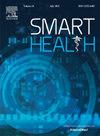An interpretable deep learning framework for predicting hospital readmissions from electronic health records
Q2 Health Professions
引用次数: 0
Abstract
With the increasing availability of patient data, modern medicine is shifting towards prospective healthcare. Electronic health records offer a variety of information useful for clinical patient characterization and the development of predictive models, given that similar medical histories often lead to analogous health progressions. One application is the prediction of unplanned hospital readmissions, an essential task for reducing healthcare costs and improving patient outcomes. While predictive models demonstrate strong performances especially with deep learning approaches, they are often criticized for their lack of interpretability, a critical requirement in the medical domain where incorrect predictions may have severe consequences for patient safety. In this paper, we propose a novel and interpretable deep learning framework for predicting unplanned hospital readmissions, supported by NLP findings on word embeddings and by ConvLSTM neural networks for better handling temporal data. We validate the framework on two predictive tasks for hospital readmission within 30 and 180 days, using real-world data. Additionally, we introduce and evaluate a model-dependent technique designed to enhance result interpretability for medical professionals. Our solution outperforms traditional machine learning models in prediction accuracy while simultaneously providing more interpretable results.
用于从电子健康记录预测医院再入院的可解释深度学习框架
随着患者数据可用性的增加,现代医学正在转向前瞻性医疗保健。鉴于相似的病史往往导致类似的健康进展,电子健康记录为临床患者特征和预测模型的开发提供了各种有用的信息。其中一个应用是预测计划外的医院再入院,这是降低医疗成本和改善患者预后的重要任务。虽然预测模型表现出强大的性能,特别是在深度学习方法方面,但它们经常因缺乏可解释性而受到批评,这是医疗领域的一个关键要求,在医疗领域,错误的预测可能会对患者安全造成严重后果。在本文中,我们提出了一个新的、可解释的深度学习框架,用于预测计划外的医院再入院,该框架由NLP关于词嵌入的发现和ConvLSTM神经网络支持,以更好地处理时间数据。我们使用真实世界的数据,对30天和180天内再入院的两个预测任务进行了框架验证。此外,我们介绍并评估了一种模型依赖技术,旨在提高医学专业人员对结果的可解释性。我们的解决方案在预测精度方面优于传统的机器学习模型,同时提供更多可解释的结果。
本文章由计算机程序翻译,如有差异,请以英文原文为准。
求助全文
约1分钟内获得全文
求助全文

 求助内容:
求助内容: 应助结果提醒方式:
应助结果提醒方式:


